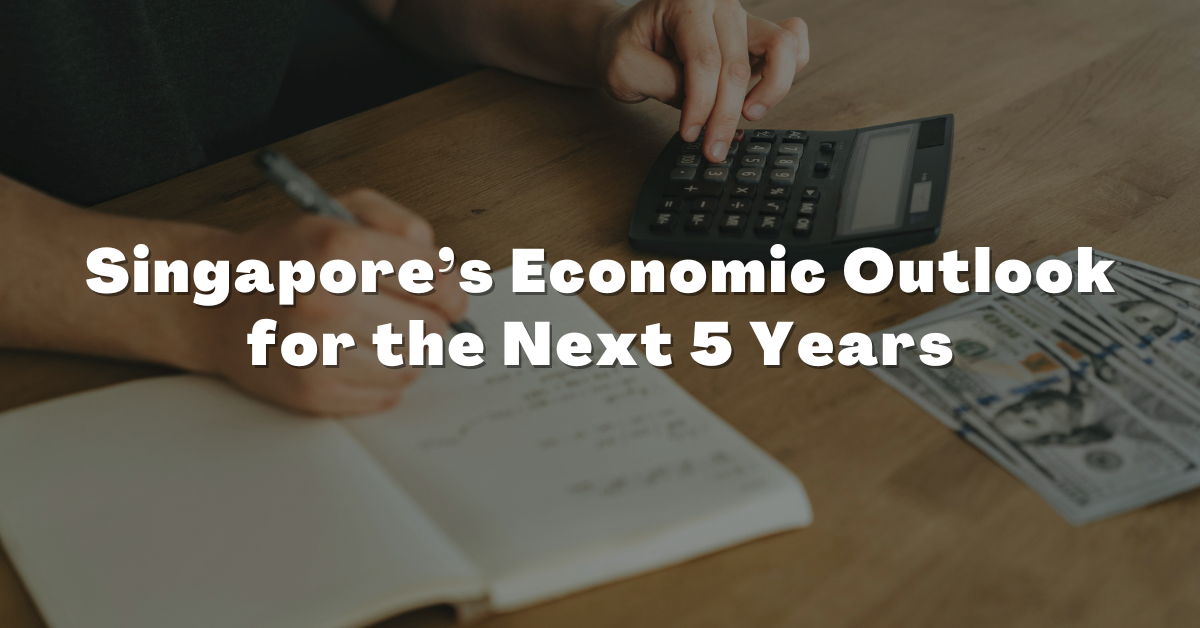
Singapore’s economic resilience and forward-thinking policies have made it a global powerhouse. However, the next five years present unique opportunities and challenges that require careful navigation. For students studying A-Level economics, including H1 economics and H2 economics, Singapore’s economic strategies offer a rich field of study. Economics tuition in Singapore plays a vital role in helping students analyze these dynamics, preparing them to understand and engage with the country’s economic realities.
Strengths Supporting Singapore’s Economic Outlook
Singapore’s robust economy is well-positioned to tackle global uncertainties and capitalize on emerging trends. Key strengths include:
- Digital Transformation and Innovation
Investments in digital infrastructure and initiatives like Smart Nation continue to drive economic growth. The focus on technology positions Singapore as a leader in fintech, artificial intelligence, and digital trade, aligning with H2 economics topics on innovation and productivity. - Global Trade Leadership
As a major trade hub, Singapore benefits from its open economy and strategic location. Its participation in regional agreements like RCEP ensures continued relevance in global trade networks, a focus for JC economics discussions on comparative advantage and trade liberalization. - Sustainable Development Goals
Initiatives such as the Green Plan 2030 emphasize sustainability while fostering green industries. Students in H1 economics explore these policies to understand government intervention and market failure. - Strong Fiscal Policy
Singapore’s disciplined fiscal management provides a buffer against economic shocks. The government’s ability to allocate surpluses to future needs is a case study in A-Level economics on fiscal sustainability.
Challenges Singapore Faces Over the Next Five Years
While Singapore’s economy is resilient, challenges remain that could affect growth and societal well-being:
- Global Economic Volatility
Uncertainties from geopolitical tensions, inflationary pressures, and potential recessions could disrupt trade and investment. Understanding these global dynamics is crucial for H2 economics students analyzing macroeconomic policies. - Income Inequality and Social Mobility
Wealth disparities continue to pose societal challenges. This issue ties into A-Level economics topics like equity, redistribution, and market efficiency. - Aging Population
Singapore’s aging workforce will impact labor productivity and increase healthcare costs. JC economics often examines this demographic trend through the lens of resource allocation and sustainability. - Environmental Sustainability
Achieving economic growth while reducing carbon emissions and managing limited resources will require innovative strategies. H1 economics students study this as an example of balancing economic and environmental objectives. - Workforce Upskilling
With rapid technological advancements, the need for continuous learning and upskilling is vital. Policies supporting human capital development are closely related to discussions in JC economics on labor productivity and economic growth.
How Economics Tuition in Singapore Prepares Students
Economics tuition in Singapore equips students to understand and critically analyze these strengths and challenges.
- Contextualized Learning
Tutors use Singapore-specific examples to illustrate economic theories, such as its response to global trade disruptions or policies to address inequality. This approach is particularly helpful for H2 economics students. - Exam-Oriented Techniques
Tuition focuses on developing essay-writing skills, critical analysis, and diagram usage, ensuring students excel in A-Level economics exams. - Incorporating Current Affairs
Discussions on contemporary issues like inflation, housing policies, and environmental initiatives help students connect theoretical knowledge to real-world scenarios, enriching their understanding of H1 economics and JC economics. - Building Critical Thinking
Students are encouraged to evaluate policy effectiveness, such as Singapore’s green initiatives or workforce development strategies, fostering deeper engagement with the subject.
The Way Forward for Singapore
The next five years will require Singapore to leverage its strengths while addressing structural challenges. Key priorities include:
- Enhancing Inclusivity: Policies aimed at reducing income inequality and improving social mobility will be essential.
- Strengthening Sustainability: Expanding green initiatives and integrating sustainability into economic policies will ensure long-term growth.
- Adapting to Workforce Changes: Continued focus on skills training and education will prepare Singaporeans for future opportunities.
For students, these trends provide valuable insights into how policies shape economic and social outcomes. Economics tuition in Singapore bridges the gap between theory and application, enabling students to critically evaluate such strategies.
Conclusion
Singapore’s economic outlook for the next five years is both promising and challenging. While the nation’s strengths ensure continued competitiveness, addressing gaps like income inequality, sustainability, and workforce readiness is vital for holistic progress. For students studying JC economics, H1 economics, H2 economics, or A-Level economics, these issues are not just academic but also integral to understanding the future of Singapore’s economy. With the guidance of economics tuition in Singapore, students can develop the knowledge and skills needed to analyze and contribute to the nation’s economic evolution.

Leave a Reply